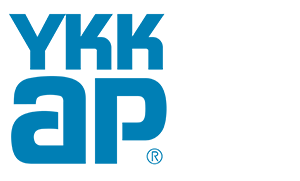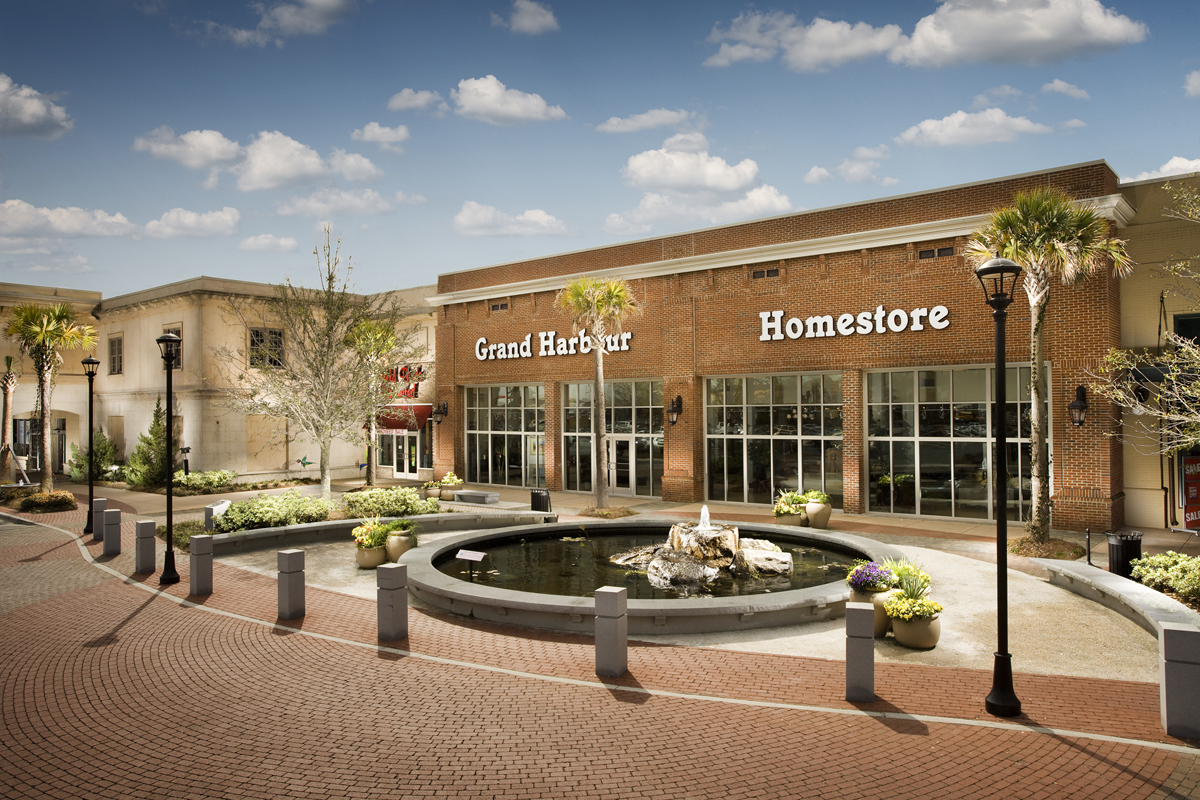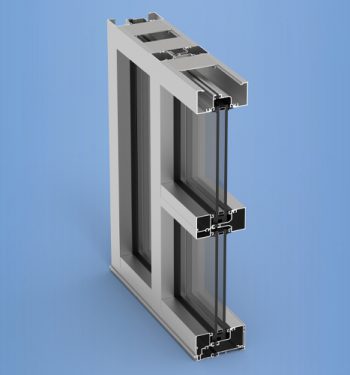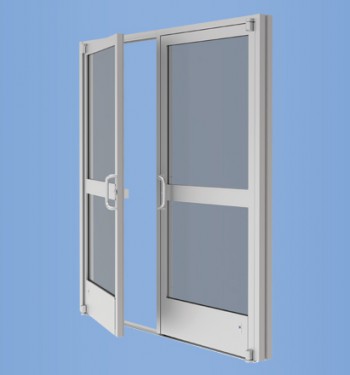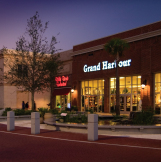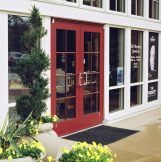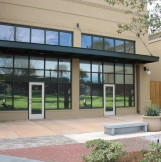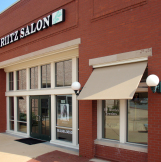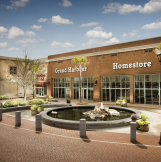Shopping Gets Greener
Eco-initiatives of a developer and its suppliers rejuvenate strip center
Abercorn Common in Savannah, Ga., has set a new national standard for environmental sensitivity in shopping center development.
The shopping center is the first in America to be certified under the LEED (Leadership in Energy and Environmental Design) rating system. A cluster of attractive brick shops next to anchor stores create a welcoming setting.
Innovative design features put Abercorn Common in a class by itself. Prime parking spaces are reserved for people carpooling or driving hybrid vehicles. Abercorn Common uses ultra-low-flow fixtures and toilets, which makes the center 30 percent more water-efficient. An acre of porous pavement reduces water runoff. A cistern captures 5.5 million gallons of rainwater annually off building rooftops, enough to irrigate the center’s landscaping, further conserving water.
A few years ago, an old grocery store occupied the lot in the heart of Savannah’s retail corridor. Melaver Inc., one of the South’s foremost developers of “green” buildings deconstructed a portion of the old center, salvaged much of the old materials and opened Abercorn Common in the spring of 2006.
“It’s called Abercorn Common because a common is a public gathering place,” says Melaver CFO Denis Blackburne, “and because we believe that one day this type of development will be the common way of doing business.”
Melaver selected Catamount Constructors, a member of the U.S. Green Building Council, as general contractor. Catamount worked with Melaver to build Oakland Park, Atlanta’s first residential construction to be certified as a green building by USGBC, and is now renovating a historic residence in downtown Savannah which is registered in the LEED for homes program.
To install the shopping center’s flush-glazed fenestration systems, Catamount brought in Architectural Glass & Waterproofing of Holly Springs, Georgia. The glazier chose aluminum wide-stile doors and thermally broken storefront systems from YKK AP, an architectural products manufacturer committed to environmental sensitivity.
“We chose YKK AP because their plant is near Savannah and LEED credits were available for local suppliers,” said Kevin Sheffield, president of Architectural Glass. “We’re also working with Catamount in renovating the historic residence where Melaver Construction and Development is project manager, and we’re using YKK AP’s hurricane-resistant products for that project. “
Green Developers Need Green Suppliers
Melaver Inc., which has eight LEED-certified projects in its portfolio, embraces design and construction practices that reduce or eliminate negative effects of buildings on the environment and occupants. In addition to adopting earth-friendly measures itself, Melaver encourages everyone involved in its projects — architects, contractors, tenants and shoppers—to think green.
YKK AP, a long-time champion of earth-friendly business practices, was a natural fit as a supplier. YKK AP has been involved in many LEED-certified construction projects. Recently YKK AP became the first fenestration systems manufacturer to receive “Cradle-to-Cradle” certification for a product line. The designation is awarded to recognize building products that are environmentally responsible from the manufacturing process through eventual recycling.
All YKK AP products are created in facilities that are models of energy efficiency and environmental responsibility. The company’s Dublin plant is ISO 14001 certified, has a 73 percent recycling rate and has reduced the amount of non-metal waste materials sent to the landfill by 40 percent. The plant uses regenerative burners to save 50 percent on the melting/casting operation’s fuel consumption, and also uses advanced techniques for waste water treatment.
To ensure product quality, consistency and integrity, the plant produces its own aluminum alloy and recycles 100 percent of aluminum waste on-site. YKK AP products contain a minimum 20% by weight of pre-consumer recycled aluminum—always from internal processes to maintain high quality.
Leading the Way to Sustainable Development
Melaver Inc. is proud of its role in the community and has long been a strong advocate of making buildings greener. By using LEED rating systems as its guidelines, Melaver uses eco-friendly building materials and native plant species in landscaping to conserve water.
Abercorn Common is a showcase of sustainable materials and practices. A tight building envelope, efficient glazing, high-efficiency light fixtures and HVAC equipment and a highly-reflective white roof help reduce electricity consumption by more than 30 percent. Low volatile organic compound paints, sealants and adhesives were used throughout the project, improving indoor air quality. High efficiency HVAC units ensure healthy levels of outside air and moisture control. The center’s “Shops 600” building has solar hot water heating and a 9,000-square-foot vegetated roof for insulation and storm water management.
With these measures, Melaver has set high standards for other developers joining in the vanguard of green retailing.
